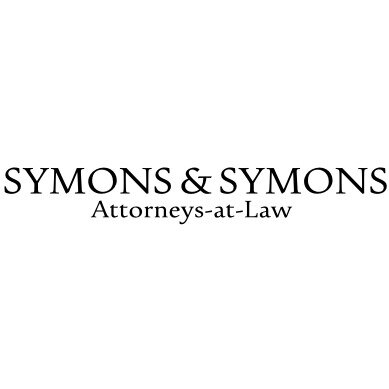Best Renewable & Alternative Energy Lawyers in West Bay
Share your needs with us, get contacted by law firms.
Free. Takes 2 min.
List of the best lawyers in West Bay, Cayman Islands
About Renewable & Alternative Energy Law in West Bay, Cayman Islands
Renewable and alternative energy is an area of significant growth and importance in West Bay, Cayman Islands. With increasing global awareness of environmental issues and the need to reduce carbon emissions, there has been a steady push to adopt more sustainable energy practices within the region. This involves integrating solar, wind, biomass, and other forms of clean energy into the existing power infrastructure. The government of the Cayman Islands has shown support for transitioning to greener energy sources, updating regulations, and offering incentives to both individuals and businesses looking to adopt alternative energy solutions.
Why You May Need a Lawyer
Legal assistance in renewable and alternative energy matters can be crucial for a variety of reasons. Whether you are an individual homeowner considering a solar panel installation, a business planning to invest in a large-scale renewable energy project, or a developer navigating government incentive programs, a lawyer can guide you through regulatory requirements and compliance. Legal professionals can also help in negotiating contracts, applying for permits, addressing land-use concerns, and resolving disputes related to energy projects. In addition, the evolving nature of this legal field means that new regulations and policies can create unexpected challenges best handled by experienced legal counsel.
Local Laws Overview
In the Cayman Islands, legislation and regulations governing renewable and alternative energy are primarily shaped by national policies with local enforcement. The Electricity Sector Regulation Law, the National Energy Policy 2017-2037, and utility regulations from the Utility Regulation and Competition Office (OfReg) are pivotal for West Bay. These laws facilitate the integration of renewable energy resources, outline interconnection requirements for distributed generation like rooftop solar, and set forth feed-in tariff schemes that provide financial incentives for clean energy production. Local building codes and environmental impact assessment requirements also play a role in how renewable energy projects are planned and executed in West Bay.
Frequently Asked Questions
What types of renewable energy are most common in West Bay?
The most common forms of renewable energy in West Bay are solar and wind energy, although solar is most widely adopted for residential and commercial use due to the island's sunny climate. There is also growing interest in exploring other renewable options like biomass and geothermal.
Do I need a permit to install solar panels on my property?
Yes, most solar installations require permits. You must submit your plans to local authorities and comply with permitting processes managed by government departments and OfReg to ensure safety and regulatory compliance.
Are there any incentives for switching to renewable energy in West Bay?
Yes, both government and utility-led programs may offer incentives such as feed-in tariffs, net metering options, and import duty concessions on renewable energy equipment.
Can I sell excess electricity generated from my solar panels back to the grid?
Yes, the Cayman Islands have a Consumer Owned Renewable Energy (CORE) program which allows individuals and businesses to sell excess electricity generated from renewable systems back to the grid, subject to terms set by OfReg and power utilities.
What regulations govern commercial renewable energy projects?
Commercial projects are regulated under the Electricity Sector Regulation Law, National Energy Policy, and OfReg guidelines, which cover licensing, environmental impact assessments, grid interconnection standards, and operational compliance.
How can I ensure my renewable energy system complies with local laws?
Consulting a legal expert or certified renewable energy provider is highly advised to ensure all aspects of your project, from design to operation, meet the latest standards, codes, and regulations.
What should I do if my renewable energy project faces opposition from neighbors or the community?
Addressing concerns through transparent communication and legal channels is essential. An attorney can assist with public consultations, dispute resolution, or appealing any project denials or restrictions.
Can businesses benefit from renewable energy tax relief or incentives?
Yes, there are specific duty concessions and financial incentives aimed at businesses adopting renewable energy. Eligibility and application processes can be explained in detail by legal counsel familiar with energy incentive programs.
Who oversees and enforces renewable energy regulations in West Bay?
The Utility Regulation and Competition Office (OfReg) is the principal regulator responsible for overseeing electricity utilities and the implementation of renewable energy policies in the Cayman Islands, including West Bay.
Is professional legal advice necessary when setting up a major renewable energy project?
Yes, legal advice is strongly recommended to navigate complex regulations, secure permits, negotiate power purchase agreements, and ensure contractual and operational compliance throughout your project.
Additional Resources
- The Utility Regulation and Competition Office (OfReg) for regulatory guidance and project approvals - The Department of Planning for permits and building code requirements - The Ministry of Sustainability and Climate Resiliency for policy information and initiatives - The Cayman Islands Renewable Energy Association (CIREA) for industry resources and support - The National Energy Policy document for comprehensive island-wide energy strategy
Next Steps
If you are considering a renewable or alternative energy project in West Bay, begin by clearly defining your project goals and gathering relevant site information. Reach out to the appropriate governmental departments to understand initial regulatory requirements. For tailored guidance and to ensure you are meeting all legal and procedural obligations, consult a lawyer with experience in renewable energy law in the Cayman Islands. Legal professionals can help with application preparation, navigating the permit process, negotiating with contractors or utilities, and ongoing compliance. Establishing a clear legal framework from the start sets your project up for long-term success and minimizes unforeseen liabilities or regulatory obstacles.
Lawzana helps you find the best lawyers and law firms in West Bay through a curated and pre-screened list of qualified legal professionals. Our platform offers rankings and detailed profiles of attorneys and law firms, allowing you to compare based on practice areas, including Renewable & Alternative Energy, experience, and client feedback.
Each profile includes a description of the firm's areas of practice, client reviews, team members and partners, year of establishment, spoken languages, office locations, contact information, social media presence, and any published articles or resources. Most firms on our platform speak English and are experienced in both local and international legal matters.
Get a quote from top-rated law firms in West Bay, Cayman Islands — quickly, securely, and without unnecessary hassle.
Disclaimer:
The information provided on this page is for general informational purposes only and does not constitute legal advice. While we strive to ensure the accuracy and relevance of the content, legal information may change over time, and interpretations of the law can vary. You should always consult with a qualified legal professional for advice specific to your situation.
We disclaim all liability for actions taken or not taken based on the content of this page. If you believe any information is incorrect or outdated, please contact us, and we will review and update it where appropriate.










